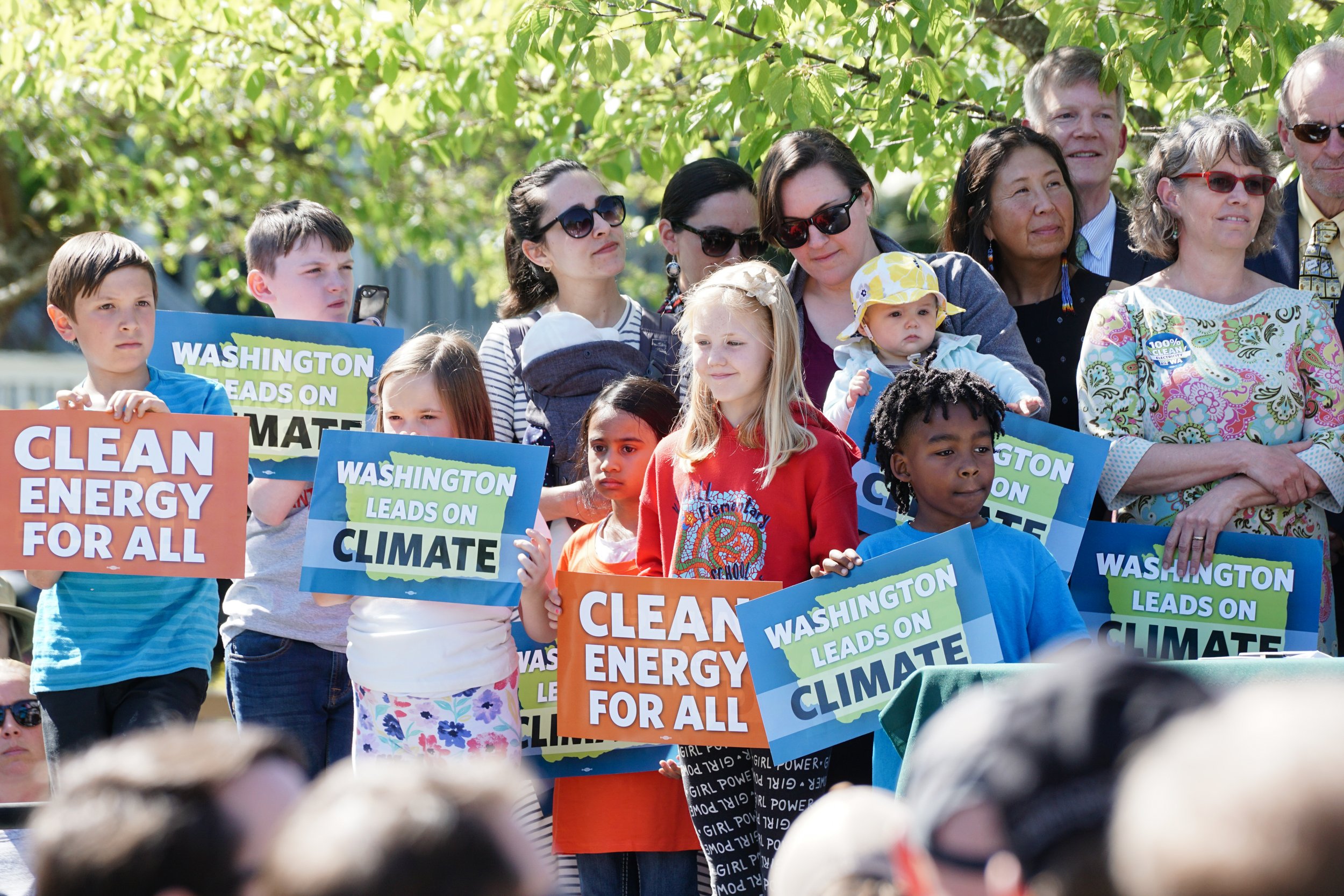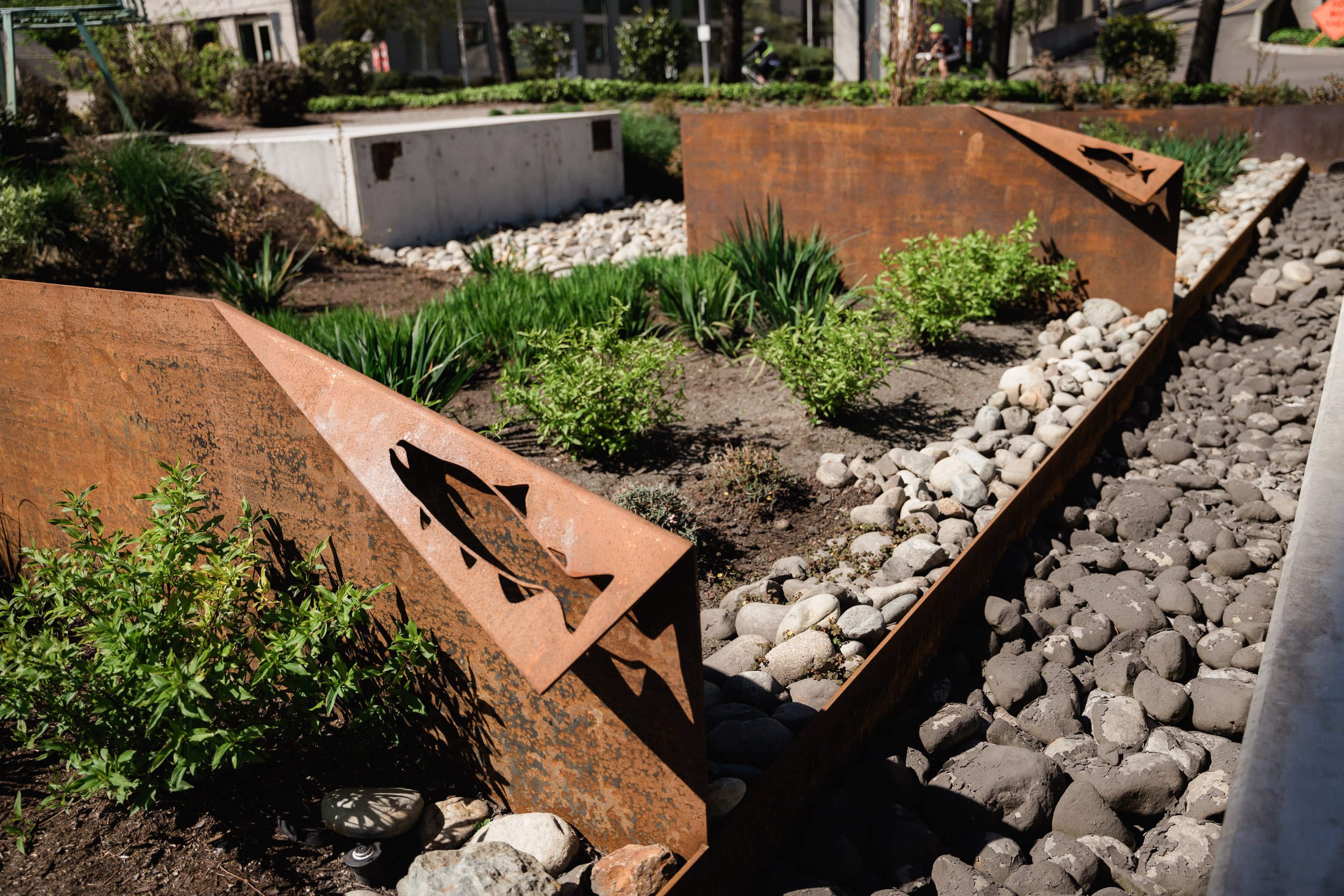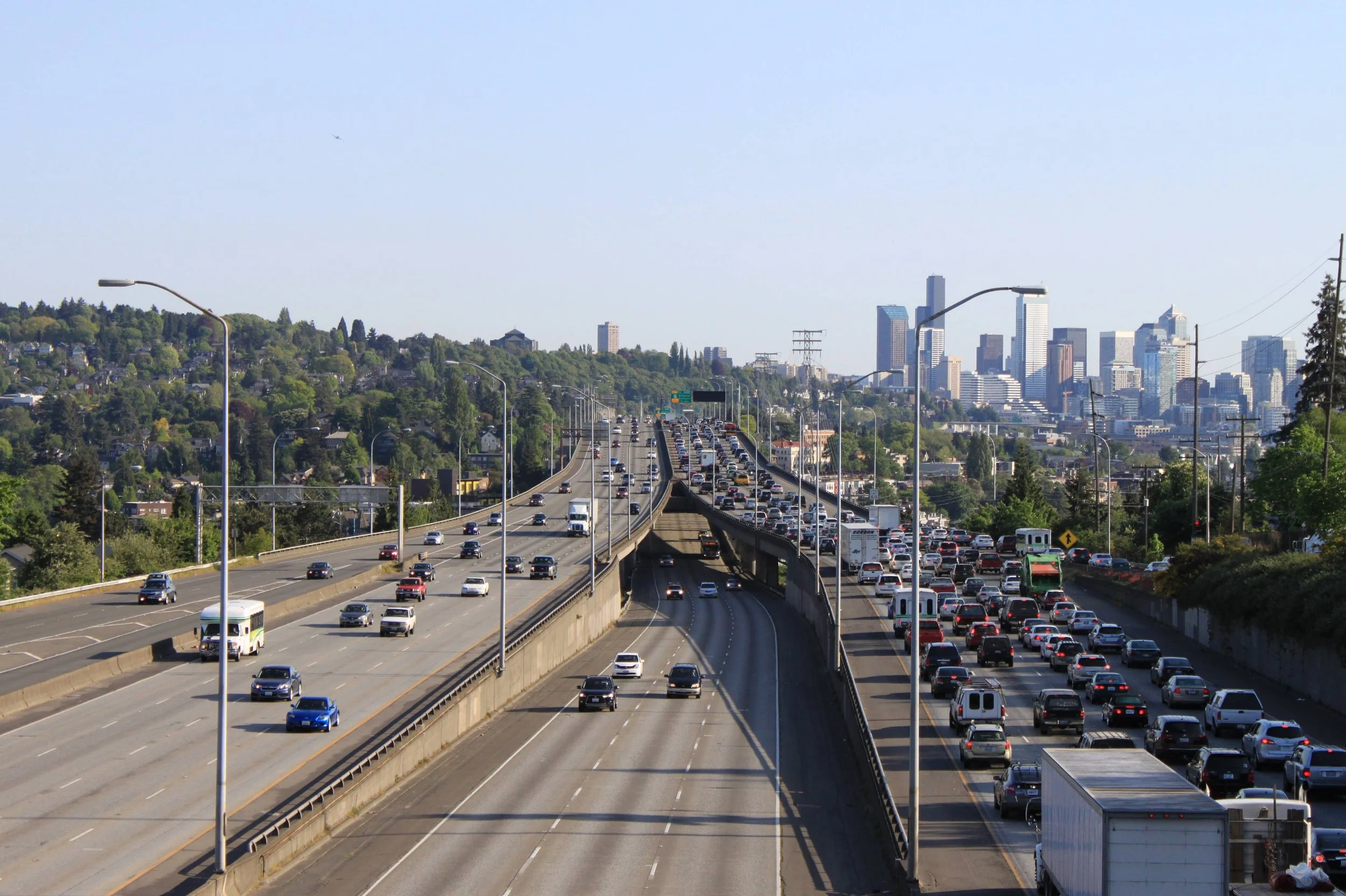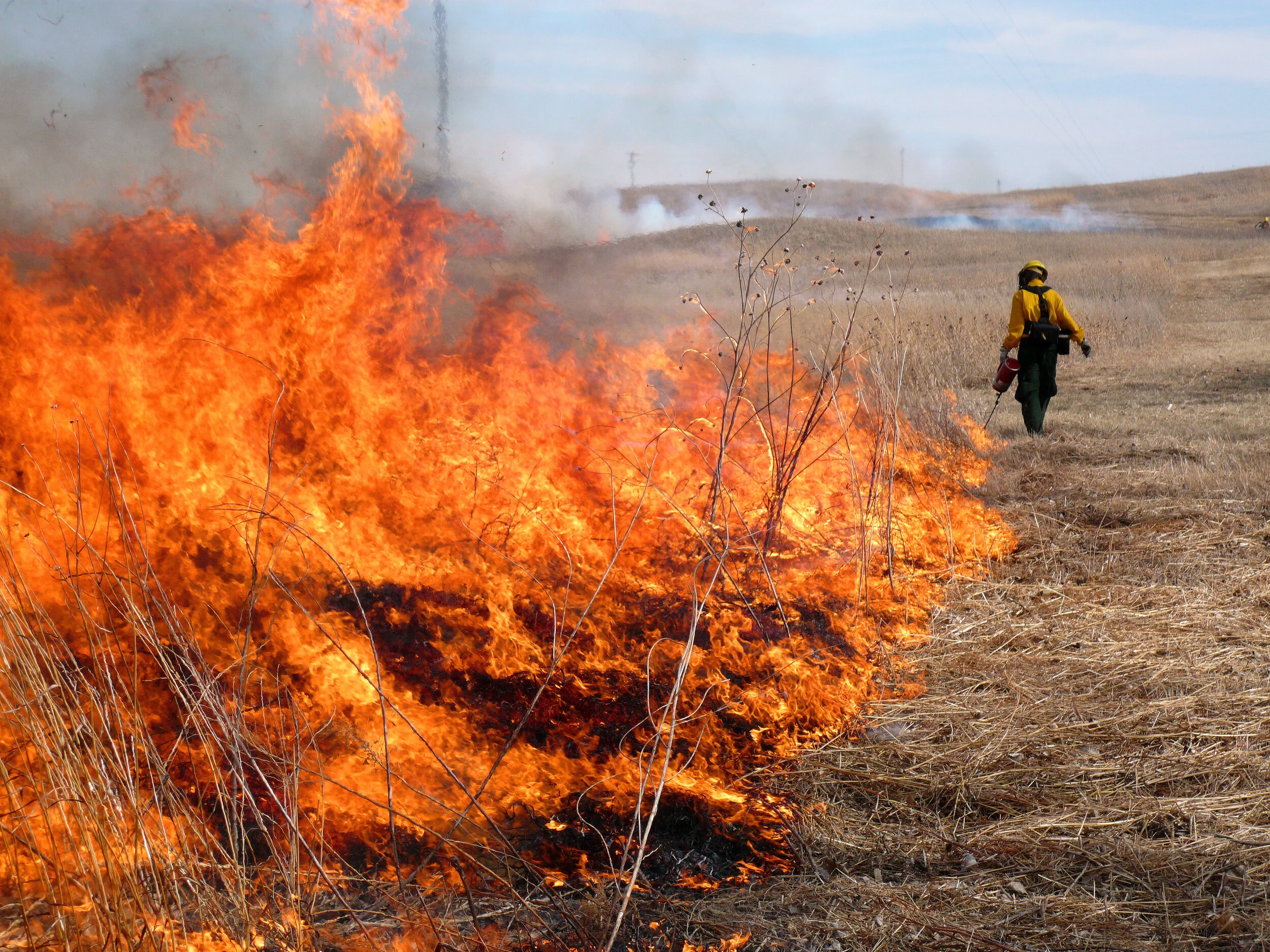We’re celebrating major wins for climate, environmental justice, wildfire resilience and natural resources as an extraordinary legislative session ends.
A landmark set of climate policies that will shape Washington’s future were approved this weekend, as legislators concluded a session like no other. As we take stock of the incredible progress, we’re grateful to our partners and legislative champions for their work to create a better world for future generations.
Both the Climate Commitment Act and Clean Fuel Standard crossed the finish line in the waning hours of the 2021 legislative session, the culmination of years of effort from advocates including The Nature Conservancy. Lawmakers, in Olympia and across the state on Zoom, sent the two bills to Governor Inslee’s desk, where they await his signature along with a host of other policies. Foremost among these, crucial to addressing climate change from a foundation of justice and equity, is the Healthy Environment for All (HEAL) Act. Together, the three policies mark a major breakthrough in Washington’s efforts to create a healthier, more sustainable future for residents in every corner of the state.
“With this suite of bills, the Washington state Legislature has taken unprecedented steps to address climate change and improve air quality, all to be done under the principles of environmental justice and meaningful community engagement. We’re creating a more resilient future by investing in green infrastructure and other natural climate solutions to address our biggest environmental challenges, and our state is committing to working in partnership with communities in building that future. We owe a great debt of gratitude to Tribal leaders, Black and Latinx-led organizations whose advocacy shaped this groundbreaking policy.”
“We are going to need many different tools to tackle climate change, and the outcome of this legislative session has given us many of those. There’s still much work to be done to ensure the health and resilience of those most impacted by climate change, but the passage of the HEAL Act, the strengthening of air quality monitoring and regulation, funding for wildfire resilience, and addressing the emissions of our transportation sector are all important pieces of the puzzle. Having a shared definition and practice of environmental justice guiding state government also positions us to make real, tangible, equitable progress benefiting Washington’s communities.”
Stunning achievements for nature and people this session wouldn’t have been possible without the deep engagement of Tribal leaders. We are humbled and grateful to work in partnership with Tribal nations and organizations from across Washington state and beyond. We are indebted to elected leaders like President Fawn Sharp of the National Congress of American Indians and Vice President of the Quinault Indian Nation, Chairman Leonard Forsman of the Suquamish Tribe, Joel Moffett of the Affiliated Tribes of Northwest Indians, and dozens of other steadfast, visionary stewards of these lands and waters.
Communities and the natural resources we all depend on will be safer and more resilient thanks to the Legislature’s investments in wildfire resilience and funding for programs to protect homes and businesses from flooding, restore habitat and more.
Both houses unanimously supported House Bill 1168, a bill to direct proactive investments in forest health, community wildfire preparedness and emergency response capacity. With $125 million in the Operating budget for implementation, Washington will be better equipped to live with the reality of wildfire.
“Washington state has taken a big step forward in fire management. Given the challenges we face each year due to wildfire, we are glad to see the Legislature meaningfully invest in supporting frontline communities and in proven forest-health solutions that will help us get ahead of the wildfire crisis.”
Thank You
Your support powers The Nature Conservancy in our partnerships working as a voice for nature in Washington, DC, in Olympia and on the ground across our state. Thank you for helping us speak up for nature.
We’re grateful to advocates from Black- and Latino-led community organizations, and proud to notch wins alongside Washington Black Lives Matter Alliance, Washington Build Back Black Alliance and El Centro de la Raza on the Climate Commitment Act and with the Latino Community Fund on community wildfire resilience. The HEAL Act wouldn’t have been possible without the leadership of Front & Centered.
We look forward to continued collaboration with these partners, as well as our friends in the Environmental Priorities Coalition and the Climate Alliance for Jobs and Clean Energy, to promote the ongoing work of building a resilient, prosperous and healthy future for all Washingtonians. And we’re as grateful as ever for the generous spirit of the our stalwart colleagues at the Washington Environmental Council and Climate Solutions, whose dedication and energy are essential to this movement.
Despite a tough economic outlook when session began, the Legislature not only preserved essential funding for the environment, but made solid investments in programs to help communities be more resilient to climate change, protect drinking water, expand recreational opportunities and preserve working lands. Highlights of the strong natural resource funding in the capital budget include:
$16.3 million for the new Community Forests program will fund six projects, including the Cle Elum Ridge Community Forest, championed by the Central Cascades Checkerboard Partnership. The program, administered by the Recreation and Conservation Office, supports local efforts to protect forests at risk of conversion for development, facilitate recreation access, preserve the rural character of working forests and protect municipal water supplies. Our friends at the Washington Association of Land Trusts did great work leading advocacy efforts for the Community Forests program.
$51 million for Floodplains by Design projects across the state, which will help protect homes and businesses from flooding, restore habitat for salmon and other fish and wildlife, protect farmland and expand recreational access and opportunities.
$10.3 million for the Washington Coast Restoration and Resiliency Initiative, which supports environmental restoration and economic development in coastal areas.
There’s a lot to do to fulfill the promises of these groundbreaking policies and budget commitments. We’ll be digging in and doing our part to help ensure Washingtonians feel the benefits that so many advocates, leaders and everyday people worked to achieve. As we look forward to the good work to be done, let’s take a minute and breathe in this resounding victory.
Banner photo by Wasim Muklashy, TNC photo contest 2019












































